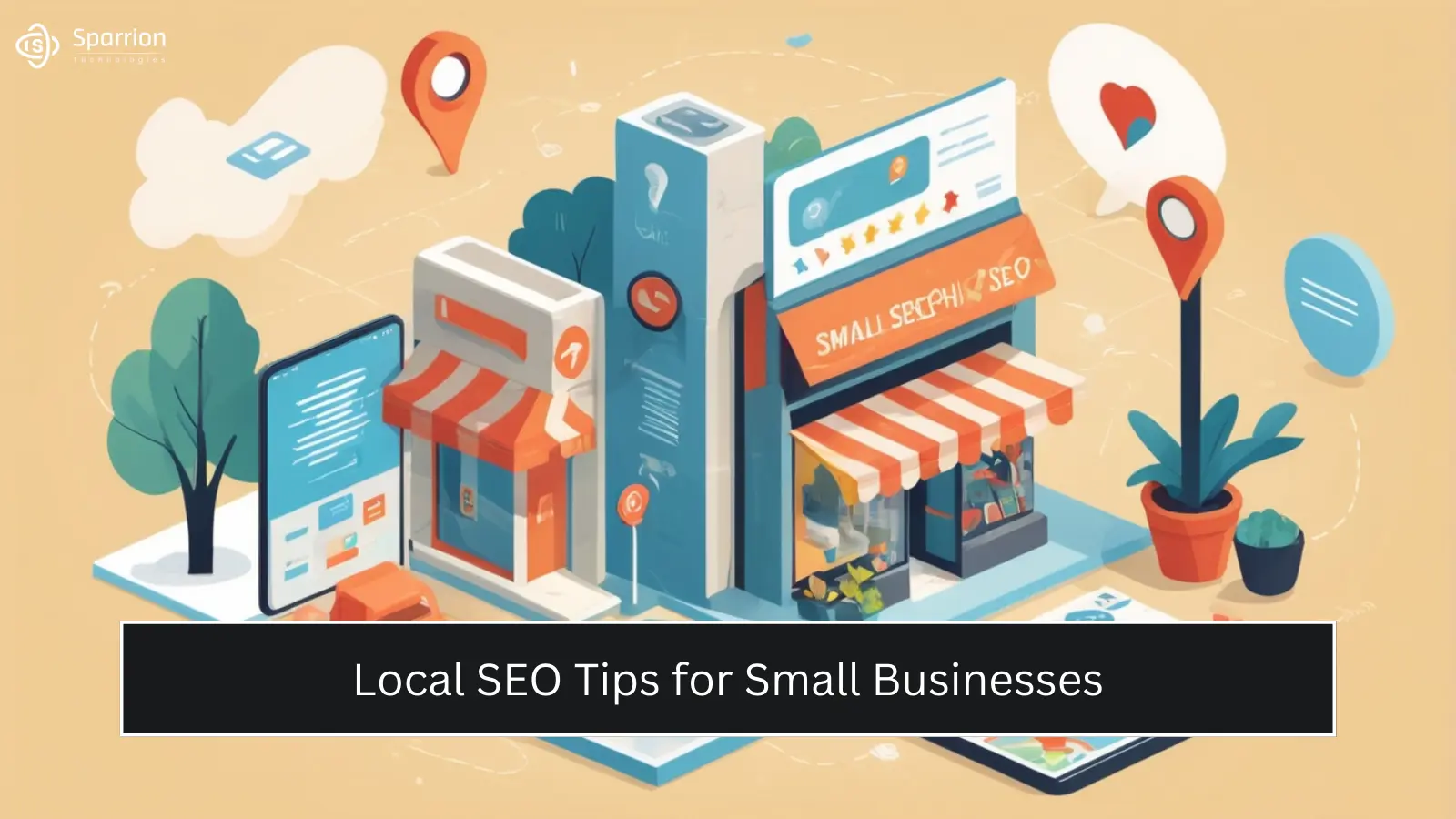In today’s digital age, small businesses need to establish a strong online presence to compete effectively. Local SEO (Search Engine Optimization) is crucial for small businesses that want to attract more customers from their local area. By optimizing your online presence for local searches, you can increase your visibility and drive more traffic to your business. Here are some essential Local SEO tips for small businesses.
Google My Business (GMB) is a free tool that allows businesses to manage their online presence on Google, including Search and Maps. Here’s how to optimize your GMB listing:
- Claim and Verify Your Listing: First, claim your business on GMB and complete the verification process.
- Complete Your Profile: Fill out all the details about your business, including name, address, phone number, website, hours of operation, and categories.
- Add Photos and Videos: Upload high-quality photos and videos of your business, products, or services to attract more customers.
- Collect Reviews: Encourage satisfied customers to leave positive reviews on your GMB listing. Respond to reviews to show that you value customer feedback.
Your website is the cornerstone of your online presence. Make sure it is optimized for local search by following these tips:
- Include Location-Based Keywords: Incorporate local keywords into your website’s content, meta tags, and headings. For example, if you run a bakery in Chicago, use phrases like “Chicago bakery” or “best bakery in Chicago.”
- Create Location-Specific Pages: If your business has multiple locations, create separate pages for each location. Include the address, phone number, and other relevant information on each page.
- Add a Local Business Schema: Implement local business schema markup on your website to help search engines understand your business’s location and services better.
- Ensure Mobile Friendliness: A significant number of local searches are performed on mobile devices. Ensure your website is mobile-friendly to provide a better user experience.
Creating high-quality, locally-focused content can help improve your local search rankings. Here’s how to do it:
- Write Blog Posts: Create blog posts about local events, news, or activities related to your industry. This can attract local readers and improve your search visibility.
- Develop Local Guides: Write guides or articles about your local area, such as “Best Restaurants in [City]” or “Top Things to Do in [City].”
- Collaborate with Local Influencers: Partner with local influencers or bloggers to create content that promotes your business and reaches a broader local audience.
Local citations are online mentions of your business’s name, address, and phone number (NAP). Consistent and accurate citations can boost your local search rankings. Here’s how to build local citations:
- Submit to Local Directories: List your business in local online directories, such as Yelp, Yellow Pages, and local chamber of commerce websites.
- Ensure NAP Consistency: Make sure your NAP information is consistent across all online platforms, including your website, social media profiles, and directory listings.
- Use Data Aggregators: Submit your business information to data aggregators like Neustar Localeze, Factual, and Infogroup, which distribute your business information to other online directories.
Social media platforms can help you connect with local customers and improve your local SEO. Here’s how to use social media effectively:
- Engage with Local Followers: Interact with your local audience by responding to comments, messages, and reviews. Share local news, events, and promotions to engage your followers.
- Use Local Hashtags: Use local hashtags in your social media posts to increase visibility and attract local users. For example, if you’re a fitness trainer in Austin, use hashtags like #AustinFitness or #AustinTrainer.
- Run Local Ads: Use social media advertising to target local audiences. Platforms like Facebook and Instagram allow you to create ads targeting specific locations, demographics, and interests.
Customer reviews and testimonials are essential for building trust and improving your local search rankings. Here’s how to encourage reviews:
- Ask for Reviews: Politely ask satisfied customers to leave reviews on platforms like Google, Yelp, and Facebook.
- Make It Easy: Provide clear instructions on how to leave a review and include direct links to your review profiles.
- Respond to Reviews: Respond to both positive and negative reviews to show that you value customer feedback and are committed to improving your services.
With the rise of voice-activated devices, optimizing for voice search is becoming increasingly important. Here’s how to do it:
- Use Natural Language: Voice searches are often conversational, so use natural language and long-tail keywords in your content.
- Answer Questions: Create content that answers common questions related to your business and industry. Use headings like “What,” “How,” and “Why” to structure your content.
- Improve Page Load Speed: Voice search users expect quick results, so ensure your website loads quickly on all devices.
Regularly monitoring and analyzing your local SEO efforts is crucial for continuous improvement. Here’s how to do it:
- Use Google Analytics: Track your website’s traffic, user behavior, and conversion rates using Google Analytics.
- Check Your Rankings: Use tools like Google Search Console, Moz Local, or BrightLocal to monitor your local search rankings and performance.
- Adjust Your Strategy: Based on your analysis, adjust your local SEO strategy to address any weaknesses and capitalize on strengths.
Implementing these local SEO tips can significantly enhance your small business’s online presence and attract more local customers. Remember, local SEO is an ongoing process that requires consistent effort and attention. By optimizing your Google My Business listing, creating high-quality local content, building local citations, leveraging social media, encouraging customer reviews, optimizing for voice search, and monitoring your performance, you can stay ahead of the competition and grow your business in your local area.
